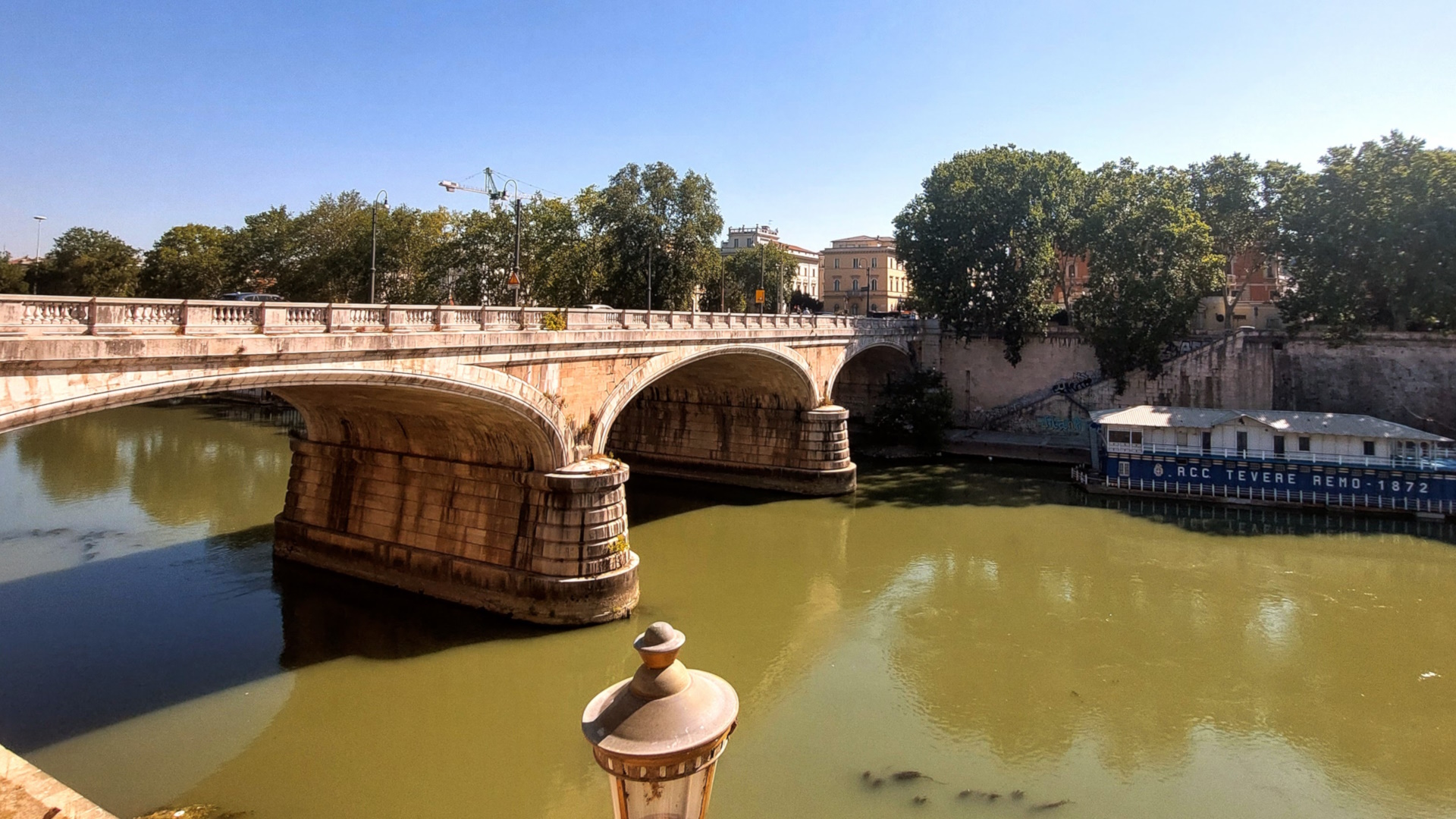
A city changing face: the new structures of the late 19th century
Beginning in 1871, when Rome assumed the role of Capital of the Kingdom of Italy, the city began to change rapidly and drastically, invested by a tumultuous building activity: the new needs related to urban development also prompted the construction of new bridges, to be built alongside the older and more historic ones. Ponte Margherita, as the Romans simply call it, dates precisely from this period and was the first masonry bridge built over the Tiber after several centuries.
Dedicated to an icon of style
Built between 1886 and 1891 to a design by Angelo Vescovali – who was also the architect behind Ponte Garibaldi, Ponte Palatino, Ponte Umberto I and Ponte Cavour – the bridge spans the Tiber with three masonry arches elegantly clad in travertine. It joins Piazza del Popolo with Via Cola di Rienzo, today a busy shopping street and at the time the main thoroughfare of the new Rione Prati that was still under construction. It was named after Margaret of Savoy, the beloved first queen consort of united Italy, whose name punctuates the toponymy of Italian cities including Rome. Married to Umberto I, Margaret transformed the Savoy Court at the Palazzo del Quinale into one of Europe’s most exclusive salons and was something of an influencer ahead of her time in fashion and style as well. The chronicles of the time do not fail to dwell on her attire during the inauguration ceremony of the bridge in December 1891, which the queen attended accompanied by her husband and court retinue: “She wore a velvet bonnet with small black feather and velvet coat”.
“Er Ciriola” and the bathing resorts on the Tiber
The city’s first two luxurious bathing resorts, the Romana Nuotatori and the Rari Nantes, predecessors of the more exclusive clubs on the Tiber, were established in the immediate vicinity of the bridge soon after the latter was built. Between the 1940s and 1970s, not far from the bridge was anchored the float of one of the most famous characters in the recent history of the river, a true myth. He was nicknamed “Er Ciriola”, that is, “the eel”, because of the ease with which he moved among the Tiber’s billows, so much so that he rescued many people who had fallen into the water (for which he received the medal for civil valor). His boat was for a long time the reference point for young Romans: snubbed at first by many because it was considered a place of entertainment for the poorest, it ended up attracting more and more people from all walks of life and professions, including film directors. Such as Dino Risi, who immortalized it in his famous “Poveri ma belli” (“Poor, But Handsome”) and Pier Paolo Pasolini, who shot some scenes of “Accattone” there.
Information
 Condividi
Condividi
Location
To find out about all accessibility services, visit the Rome accessible section.












































